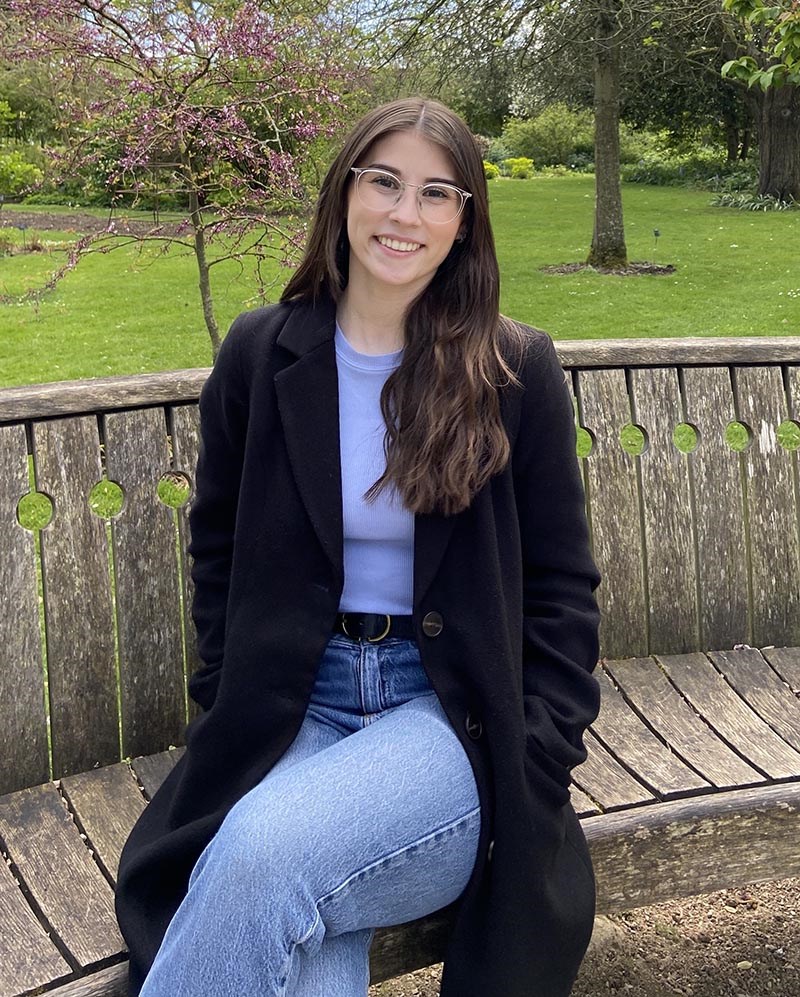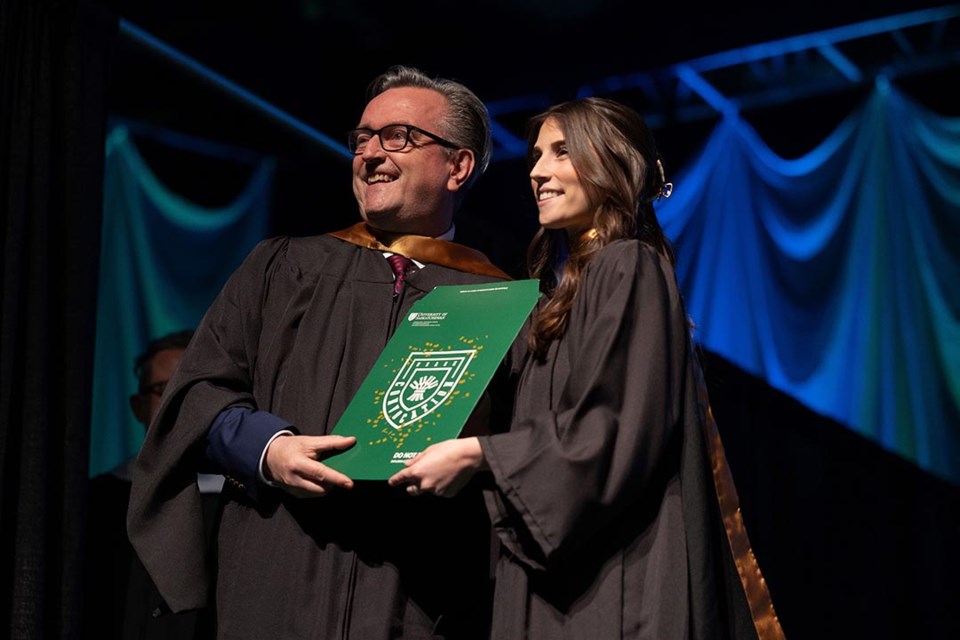SASKATOON — Kennedy Marley (JD’24) had no idea if she had a chance to win a Rhodes Scholarship but decided to give it a shot and applied this past summer.
It turned out she made the right decision.
In November, she became one of 11 Canadian students – including two from the University of Saskatchewan (USask) – awarded the scholarship and will be studying for her master’s degree at the University of Oxford in England this fall. The Rhodes Trust describes the award as “the world’s pre-eminent and oldest graduate scholarship.”
“I thought I’d throw my hat in the ring and hope for the best. I had no expectations whatsoever,” said Kennedy, who graduated from USask’s College of Law (USask Law) in spring 2024.
After completing and submitting the rigorous application, the Métis woman from the Regina area was selected as one of 12 finalists from the Prairie region, as was her identical twin sister Caydence. They graduated first and second in their law class, with Caydence awarded the Law Society of Saskatchewan Gold Medal for highest academic standing and Kennedy receiving the silver medal. They are currently law clerks at Saskatchewan’s Court of Appeal.
The final Rhodes interviews were held on a Saturday in Saskatoon, and candidates were told to expect a call the next day with the result. Not wanting to get word while out doing errands, Kennedy spent the day at home, “staring at my phone, making sure it’s charged, and that my ringer was on.”
The selection committee called at 5:30 pm.
“It was a quick call, a couple of minutes,” she recalled in a recent interview. “And I felt an enormous amount of disbelief and shock. When you get that phone call, you know your life has taken a 180 (degree turn). It doesn’t take much to make me cry, so I was absolutely sobbing on the phone.”
Her partner, USask Law student Josh Thorson, was with her, as was Caydence, whose reaction was immediate and enthusiastic.

After graduating from USask’s College of Law last spring, Rhodes Scholar Kennedy Marley will begin studying at the University of Oxford this fall. | Photo courtesy USask
“I teared up hearing the news and quite literally jumped up and down with joy. It was a moment of surreal and unparalleled pride and excitement,” said Caydence, who is still set on earning her master’s degree in law and is considering schools. “Of course, my dream is to pursue this education at a university with Kennedy; she is my best friend and my most steadfast supporter in this profession. To continue our educational journeys together would be such a privilege and blessing.”
At Oxford, Kennedy plans to study criminal sentencing regimes in Canada.
“I’m very curious to do an international, interdisciplinary comparison of sentencing regimes and how they respond to Indigenous offenders, and more narrowly, how we treat gang involvement among Indigenous youth as an aggravating factor.”
In Canada, the Supreme Court’s ruling in R v Gladue reinforced that courts must consider an Indigenous offender’s background when they are being sentenced for a crime. Known as Gladue factors, these include attendance at residential schools, a history of physical abuse, separation from culture or family, and struggles with drug and alcohol use, among many others.
“There seems to be no room to consider whether gang involvement could ever be perceived as a neutral, or even more radically, a mitigating factor when it comes to an accused person’s moral culpability,” she said. “When you think more thoughtfully about why Indigenous youth are enmeshed in gang lifestyles, it’s all inevitably linked to Gladue factors.”
Kennedy said she feels the people she had the opportunity to meet at USask Law, along with instructors and professors who encouraged her curiosity, have prepared her well for the next step in her academic career.
“It’s a very welcoming college in that I had a lot of professors who really made an open space to allow me to discuss ideas and ask questions,” she said.
“The opportunity to have discussion and really think through and develop my own ideas definitely helped prepare me for this next step.”
Martin Phillipson, dean of USask Law, said Kennedy fully embraced the opportunity the College of Law provides for students to pursue their intellectual curiosities.
“Students like Kennedy also take the opportunity to explore issues of deep personal importance to them and their communities, as they view their legal education as a stepping-stone to becoming agents of change,” said Phillipson. “This is particularly meaningful for Indigenous students who are driven by a desire to transform the legal system in ways that will ensure better outcomes for Indigenous peoples.
“This Rhodes Scholarship will enable Kennedy to continue this work, and the college was privileged to be a foundational part of her journey.”
Hilary Peterson, a sessional lecturer for USask Law, said Kennedy’s engagement with the study of law was evident as soon as she walked into her class.
“She was so very engaged, and interested in the perspectives of her peers,” said Peterson, who is senior general counsel for Métis Nation—Saskatchewan (MN—S). “And as I’ve learned more about her, I see how passionate she is about pursuing justice for Indigenous people.”
A member of MN—S, Kennedy is especially proud of the Order of Gabriel Dumont Bronze Medal she received earlier this year in recognition of her leadership, community service, cultural initiatives, and overall academic performance.
She said her Métis ancestry and the significance of being an Indigenous woman studying at one of the world’s top universities were key factors she highlighted in her application and interview for the Rhodes Scholarship.
While acknowledging the significance of the scholarship, Kennedy makes it clear that the importance of attending Oxford runs far deeper than earning a prestigious degree.
“It’s very important to me that when I’m in a space that I recognize as being an extremely colonial institution, I don’t quiet myself for the sake of fitting in. When I go there, I’ll be the same advocate for justice and for Indigenous peoples that I have always been,” she said.
“Education has been denied to so many Indigenous people for so long. I deeply appreciate how important it is to have these experiences, and I don’t take them for granted.”
— Submitted by USask Media Relations




